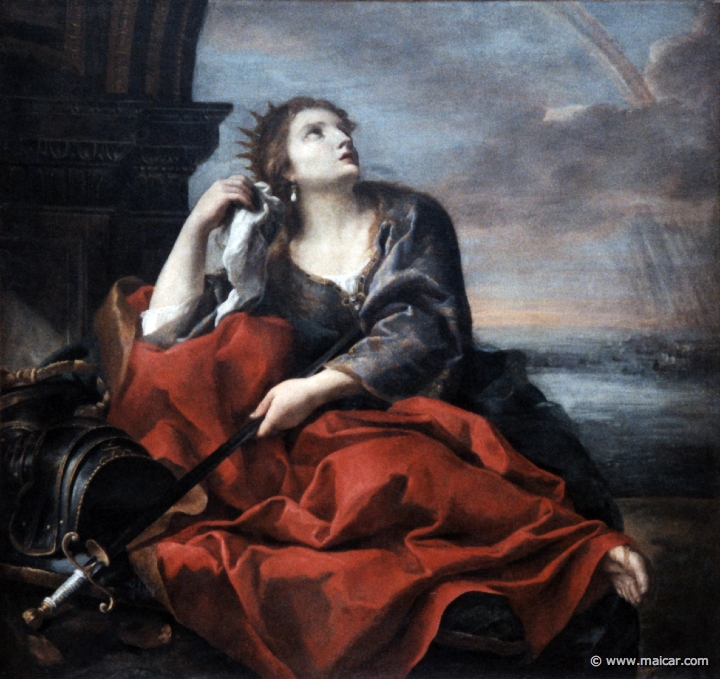The Coach Paterno story, tangentially referred to in yesterday’s post through a reference to the Penn State student riots, is back in the headlines with a related story about another storied athletic program. This one involves Syracuse University firing Bernie Fine, assistant to Hall of Fame basketball coach Jim Boeheim. Again the charge involves raping young boys. In a past post I compared Penn State’s Jerry Sandusky to Mr. Hyde, and the same goes for Fine if he is indeed guilty.
Today I want to turn from the perpetrators to the college communities where they did their dirty work. We idealize these communities as havens from the real world (Sandusky appears to have used Penn State as bait), and I find it particularly ironic that Penn State is known as “Happy Valley.” The Happy Valley that I know is the one in Samuel Johnson’s The History of Rasselas, Prince of Abissinia.
In Johnson’s philosophic narrative about a prince and his sister who go on a journey searching for happiness, the Happy Valley is the idyllic world where they are brought up. None of the Abissinian princes and princesses are supposed to leave it and, because it is so beautiful, most don’t want to. Here’s a description, which may resemble the memories that some alumni carry around with them of their alma maters:
Here the sons and daughters of Abissinia lived only to know the soft vicissitudes of pleasure and repose, attended by all that were skillful to delight, and gratified with whatever the senses can enjoy. They wandered in gardens of fragrance, and slept in the fortresses of security. Every art was practiced to make them pleased with their own condition. The sages who instructed them, told them of nothing but the miseries of public life, and described all beyond the mountains as regions of calamity, where discord was always raging, and where man preyed upon man.
To heighten their opinion of their own felicity, they were daily entertained with songs, the subject of which was the happy valley. [Penn State’s school song, incidentally, includes the line, “May no act of ours bring shame.”] Their appetites were excited by frequent enumerations of different enjoyments, and revelry and merriment was the business of every hour from the dawn of morning to the close of even.
Of a different order, however, is the palace, which has always fascinated me. I think it functions as a metaphor for the mind, made up as it is of strange and secret passages known only to a few. To see the palace through the lens of the Penn State and Syracuse rapes, it is as though Samuel Johnson is saying there are recesses, even in the Happy Valley, that are hidden away. I don’t know about Syracuse, but Penn State’s football program has had a cultish dimension and been famous for operating under a shroud of secrecy. Joe Paterno, like Johnson’s emperor, built his palace so that outsiders could not see into it. Now that it has been opened up to public scrutiny, we are seeing just how twisted the secret passages were. Here is Johnson’s description:
This house, which was so large as to be fully known to none but some ancient officers who successively inherited the secrets of the place, was built as if suspicion herself had dictated the plan. To every room there was an open and secret passage, every square had a communication with the rest, either from the upper stories by private galleries, or by subterranean passages from the lower apartments. Many of the columns had unsuspected cavities, in which a long race of monarchs had reposited their treasures. They then closed up the opening with marble, which was never to be removed but in the utmost exigencies of the kingdom; and recorded their accumulations in a book which was itself concealed in a tower not entered but by the emperor, attended by the prince who stood next in succession.
The raped children must have seen the structures into which they were lured–the gyms and coaches’ houses–as having these double existences, one out in the open, one subterranean. A significant detail from Stevenson’s novel, meanwhile is that the squalid house where Mr. Hyde lives is connected, by secret passage, to the elegant house in a respectable neighborhood where Dr. Jekyll lives. The world sees the shining exterior, not the hidden corruption.
When I teach Rasselas to my students, I tell them that they are like the prince in the work. Initially contented in Happy Valley, enentually he feels suffocated by it and chooses to escape and explore the world. The unhappy students at Penn State and Syracuse must do the same. They may have thought they were living in an innocent world so that (in the case of Penn State) they chose to angrily riot when their illusions were ripped from them. But growth can only occur when we leave our protected childhood behind.
One other note on Joe Paterno: apparently he admires Aeneas as a moral hero. An article in ESPN’s on-line journal reports that he
read the Roman poet Virgil’s Aeneid in its original Latin form numerous times throughout his life. In many ways, Paterno seemed to be a reflection of the Virgil character he admired most, Aeneas: selfless, compassionate, a leader without peer, morally superior, rarely questioned by his followers and almost too good to be true.
Aeneas, of course, chooses to abandon his heart, Queen Dido of Carthage, to follow his lofty destiny and found Rome. (She commits suicide as a result.) Did Paterno choose to close his eyes to the heart-breaking tragedies occurring under his nose to save his lofty program? Like Dido, many admirers around the country are feeling betrayed by their hero. Happy Valley, and of course several young boys, have paid a terrible price for his inattention, blindness, avoidance, or cover-up.


